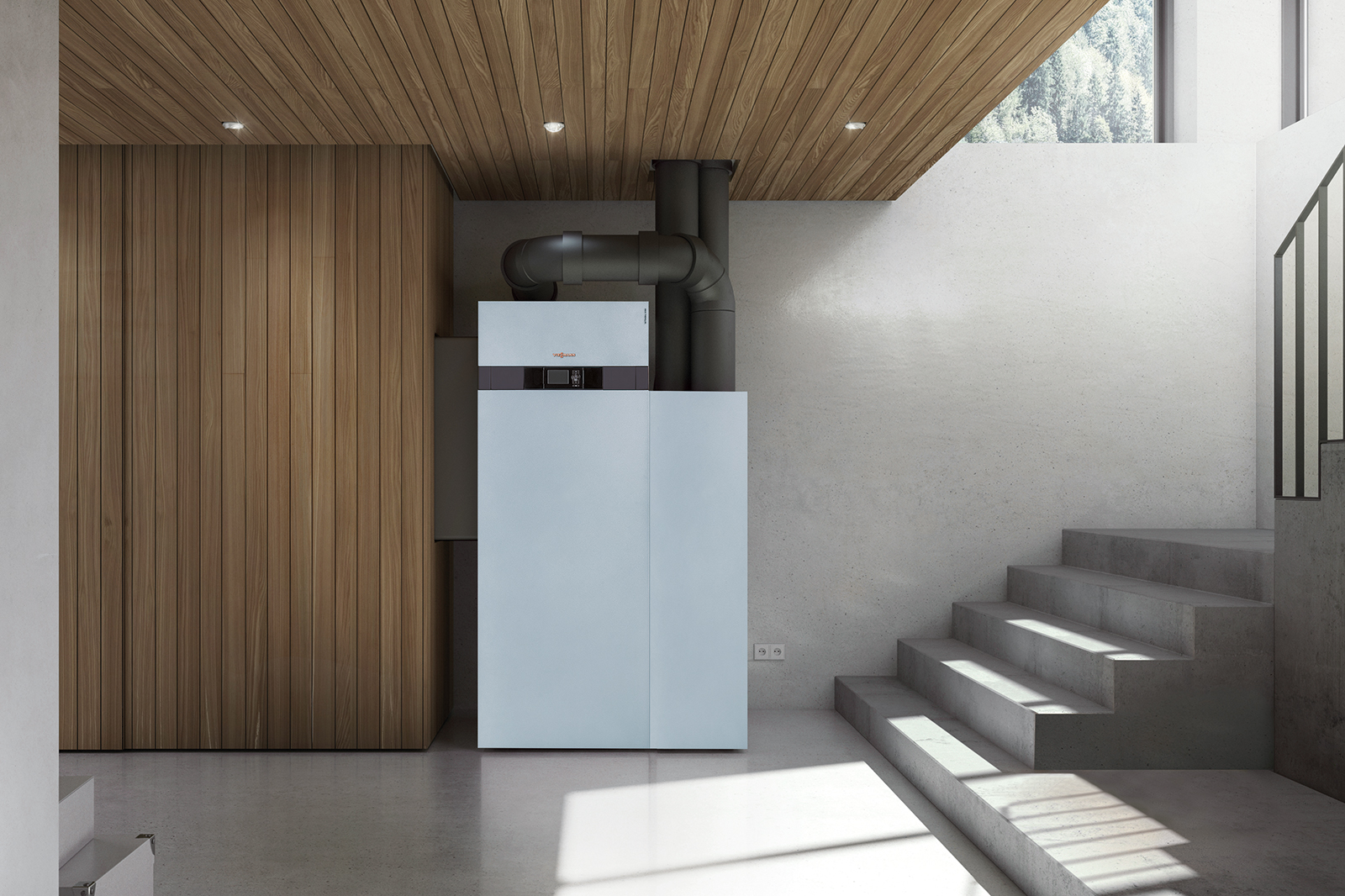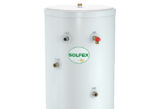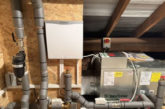
Viessmann Marketing Director Darren McMahon assesses the likely impact of the latest government policies designed to decarbonise the heating sector.
The industry has reacted to the Government’s Heat and Buildings Strategy, in particular the Boiler Upgrade Scheme. Opening in spring 2022, the latter aims to encourage the replacement of fossil fuel heating systems by offering capital grants to property owners to install heat pumps or biomass boilers.
Like others across the industry, we welcome this fresh investment in heat decarbonisation initiatives. It’s greatly needed to help unleash the innovation and training we need to drive the uptake of low carbon technologies. We also welcome the strengthening of regulations and enforcement to ensure installation quality. Whilst we welcome this new funding mechanism, we’re also realistic about the scheme’s likely impact.
Like the Domestic Renewable Heat Incentive (dRHI) that it effectively replaces, the Boiler Upgrade Scheme may deliver an increase in heat pump sales. However, the expected number of installations will be lower than required to achieve our national target of 600,000 per year by 2028, as the budget is insufficient. Quite simply, the Boiler Upgrade Scheme alone is not enough.
Market-driven approach
There was however, another less widely known and discussed government consultation published alongside the Heat in Buildings Strategy: ‘A market-based mechanism for low-carbon heat’. The proposals raise some intriguing questions about how the shortfall in heat pump volume might be made up. It suggests an industry-led, market-incentive mechanism, similar to that used in the automotive industry to reduce vehicle emissions. Slated to come into force in 2024, it aims to provide a ‘clear, long-term policy framework’ to stimulate investment and innovation in the heat pump sector.
The proposed mechanism would require appliance manufacturers to achieve a defined and growing number of low carbon heating product sales by making ‘the switch to a heat pump an increasingly attractive, mainstream choice’. Among other things, this includes an ambition to reduce the installation costs of heat pumps by 20-25% by 2025, en route to achieving parity with boiler pricing by 2030. To support this, a range of financial assistance and market stimulation measures are currently under consideration. The proposal includes all kinds of heat pumps, including hybrids and low and high temperature models.
This type of market-incentive approach puts the onus on manufacturers and suppliers of fossil fuel appliances to drive heat pump take-up. The government has previously been challenged for assuming that an increase in volume alone will drive down heat pump prices, especially as much of the market is dominated by brands with reverse-engineered air con units which already have economies of scale. After all, many manufacturers, including Viessmann, have been offering low-carbon heating systems for decades, yet customers still largely opt for conventional boilers. This initiative seeks to address this by ensuring manufacturers and installers adjust their pricing to encourage the right consumer behaviour, regardless of demand or economies of scale.
Numerous questions about the mechanism remain and BEIS is currently seeking industry input on the technologies, targets, trading options, administration and enforcement options.
Flexibility is key
While the combination of these new schemes and proposals scoped out by BEIS do promise to move us closer to heating decarbonisation, problems remain. There is arguably too much emphasis on heat pumps, while appliances such as hydrogen boilers, hybrids and fuel cells– which offer an easier, faster and more inclusive energy transition for much of the UK’s housing stock – are still not explicitly supported.
We need a multifaceted approach to achieve our climate goals, incorporating hydrogen, heat networks, hybrid systems, connected appliances and heat pumps. Even the name of the ‘Boiler Upgrade Scheme’ appears to denigrate appliances that – thanks to initiatives such as Boiler Plus, which the Government expects to invest in further – are already greatly contributing to lowering emissions.
The built environment is heterogeneous, UK housing stock is very diverse and end user needs are different; this means that there are no general-purpose solutions and technologies such as heat pumps, hybrids, fuel cells and hydrogen boilers will work synergistically. Narrowing the scope of technical approaches is wrong-headed. Policy makers should be seeking to provide flexibility to keep our options as open as possible, while ensuring a rapid and well-managed transition to a range of solutions.













